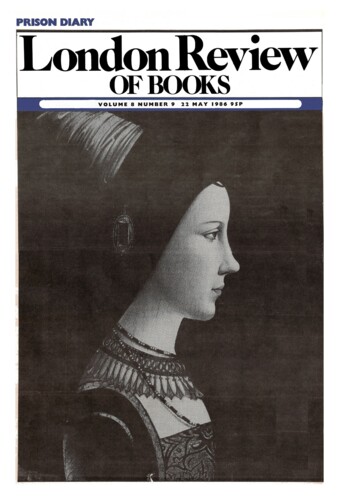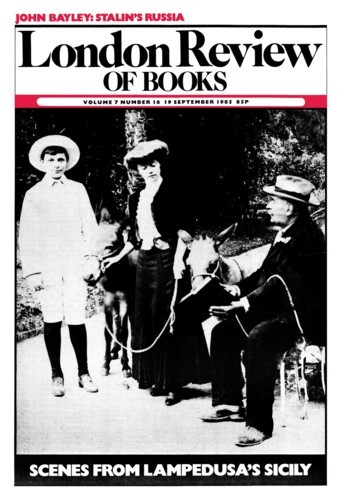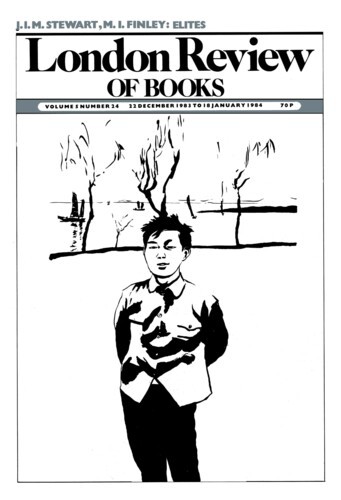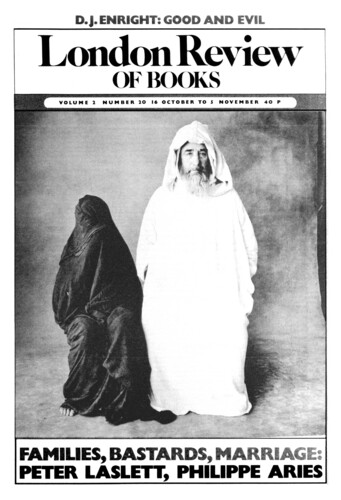Mrs Schumann’s Profession
Denis Arnold, 22 May 1986
English musicology has always embraced the Big Bang theory, which is to say that musical history is the story of great composers. Tovey’s remark that there are Great Composers and there are Interesting Historical Figures sums it up quite well. The German school has for the most part believed in principles and (since its discipline was born in the times of Darwin) the development of the species – whether symphony, harmonic idiom or orchestration. No doubt these differences have something to do with national temperament. They are also to do with institutions. German musicology always was a thing of university professors. English musicology has been largely a branch of journalism. It has been frankly popularist: it thrives in music appreciation classes and broadcasts, in programme notes telling the audience about form, in books about composers – for human interest is easily assimilated by the non-musician. It may be considered more useful than German (and hence American) scholarship, but it can hardly be denied that it does not make for good historical writing.’




